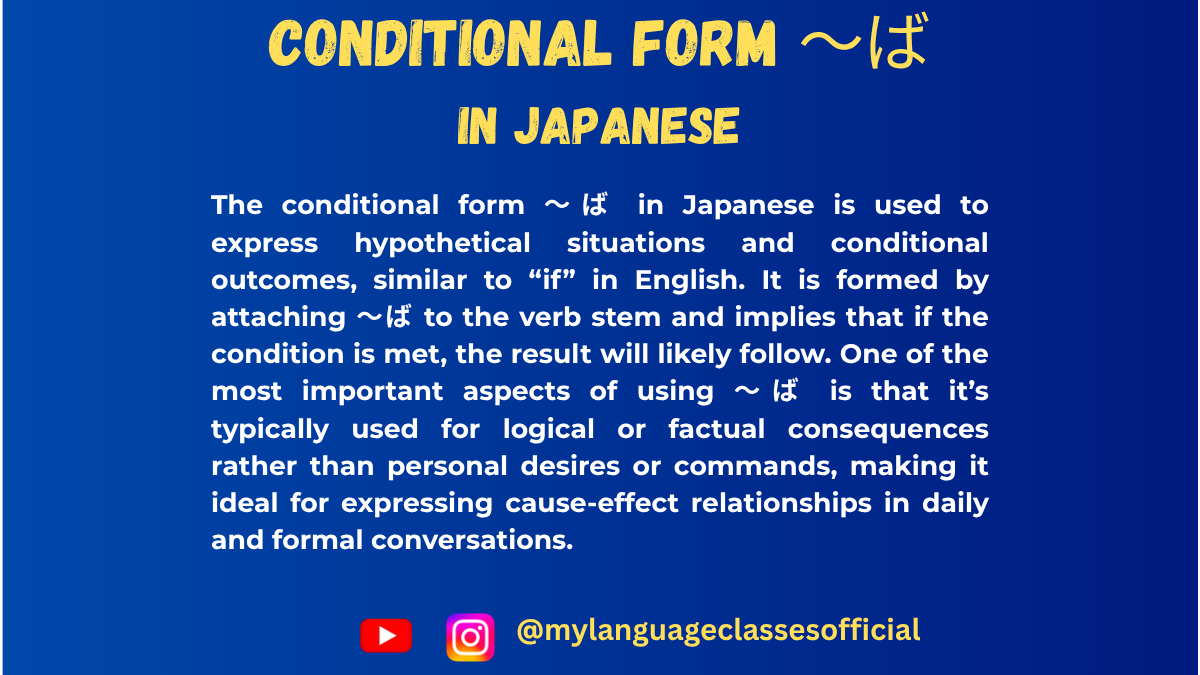Your cart is currently empty!
Tag: japanese ba conditional grammar for beginners

Understanding〜ば Conditional in Japanese
Understanding 〜ば: The Conditional Form in Japanese
The Japanese conditional form 〜ば is an essential grammatical structure used to express conditions, similar to “if” or “when” in English. It provides a flexible way to convey cause-and-effect relationships, hypothetical situations, and … Read more

